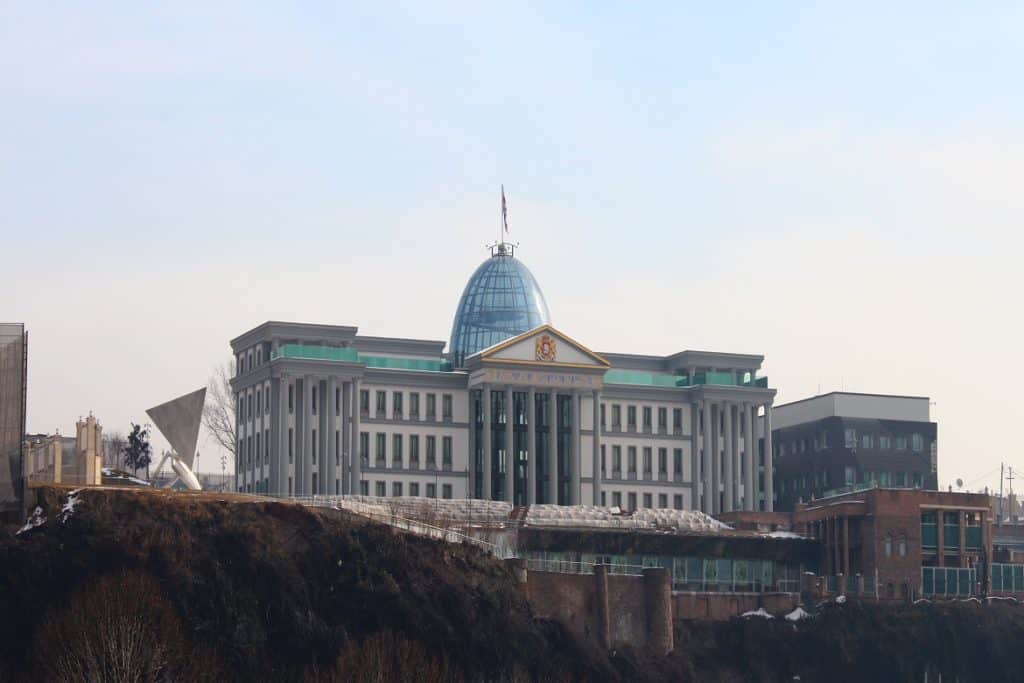The Caucas region historically has been a place where the west and the east collide. First from the ancient Greek influence from the west and the Persian Empire to the east, to the Russian influence and the NATO and EU integration in the present day.
All of these different influences made Georgia a country on the crossroad of the multipolar world. Moreover, Georgia is one multiethnic state with different ethnic groups and cultures. Keeping different nationalities into a single state in a fragile region was always a challenging process and it seemed that the Soviet rule was able to maintain peace and harmony for a few decades. However, with the fall of the Soviet Union, the old internal conflicts have emerged back to the surface.
Divided Country
The main geopolitical problem that has implicated negative effects on Georgia is the fact that the country is surrounded by various foreign powers. With each side having its own geopolitical and regional interests. Although the collapse of the Soviet Union gave the birth of independent Georgia, the newly formed Russian Federation was still strong enough to spread its influence and interests in Georgia. With the active support of the breakaway republics of Abkhazia and South Ossetia, the Kremlin was able to prevent Georgia to join the Western world.
The Russian help for the self-proclaimed republics of Abkhazia and South Ossetia combined with the Russian imperialistic ambitions from the past have created a strong anti-Russian sentiment among the Georgians In the same time, there are many Georgians that have pro-Russian views and still see the Russian Federation as the big brother. All of this has created a divided society within Georgia combined with two breakaway republics and a frozen conflict.
The NATO and EU Ambitions
With the open Russian support for the breakaway republics of South Ossetia and Abkhazia, the Georgian leadership with president Saakashvili engaged in a close cooperation with the West aiming to get a full membership in NATO. As result the Georgian relations with Russia detoriated. The culmination happens during the 2008 Russo-Georgian War for which the Georgian side hoped that it will get help from the NATO alliance. However, as the country was not a member state, article 5 of the NATO pact could be invoked and the alliance was not prepared to intervene in a direct confrontation with the Russian Armed Forces. The end result was a significant military, economic and political loss for Georgia.
In order to better understand the complex position of Georgia in this conflict, we need to analyze it through the prism of the Kremlin. Georgia is the backyard of Russia and Moscow would have never allowed Georgia to join NATO. The support for the breakaway republics of South Ossetia and Abkhazia is a well planned Russian scenario for preventing the spread of the North Atlantic Treaty Organization. The same model was utilized in Ukraine in recent years through the support for the Donbass republics.
The Russian military intervention was a clear message for Georgia to give up on its NATO ambitions. In the same time, the economic dependence of the Russian market made Georgia to put the sword on the ground and to try to revitalize the relations with official Moscow.
NATO Ambitions Still Present
The 2008 Russo-Georgian War put the NATO ambitions on hold, at least temporary.
However, with the alliance reaffirmed quest for enlargement with countries such as Montenegro and now Macedonia, the next on the agenda will probably be the Georgian and Ukrainian case. During the last few NATO summits, the Georgian issue for full membership has been one of the hot topics for debate. Nato has promised that Georgia will one day be able to join the treaty, the expansion of which has been a constant bone of contention with the Kremlin.
Moreover, the renewed standoff between Russia and the West could result in another episode of the conflict between the East and West for domination in Georgia
The Russian Response
And while current president Giorgi Margvelashvili has said Russia continues to wage a de facto war against his nation, the rhetoric from Moscow is based on warnings and potential threats. Russian Prime Minister Dimitri Medvedev has warned of grave consequences if the alliance tries to admit a state like Georgia in the organization. Moreover, an even stronger message was sent by Vladimir Putin. The Russian president stated that Russia would “respond appropriately” to the “direct threat” of any new Nato military installation near its borders.
The other element is closely related with the historical geopolitical Russian ambitions. The official Moscow interest in Transcaucasia, according to Swedish academic Svante Cornell, would allow Russia to manage Western involvement in Central Asia, the area of geopolitical importance. In the same time, it can prevent the NATO ambitions for containing Russia in the long term.
These historical and geopolitical moments put Georgia in a very complex and challenging situation. From one side, the Caucasian nation has legitimate ambitions to become a more developed and integrated into the Euro-Atlantic world. On the other side, they face the Russian bear on their doorstep on daily basis. A notable example can be seen through the Russian military drills that were held in the breakaway regions in August this year. The foreign affairs ministry in Tbilisi stated that Russia was conducting large-scale military drills and sees these activities as a direct demonstration of the military muscles of the Russian Federation. And while some may argue that the chances of Russian military action are slim, the potential for a future escalation is always present.
The geopolitical situation in Georgia is very complicated and challenging. It seems that this tiny Caucasian country will remain sandwiched between Russia and the West, with each side asserting its own geopolitical ambitions.
Image Credit: Flickr/InternationalCrisisGroup







